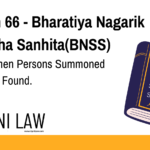Code:
(1) If any person acting under warrant of arrest, or any police officer having authority to arrest, has reason to believe that the person to be arrested has entered into, or is within, any place, any person residing in, or being in charge of, such place shall, on demand of such person acting as aforesaid or such police officer, allow him free ingress thereto, and afford all reasonable facilities for a search therein.
(2) If ingress to such place cannot be obtained under sub-section (1), it shall be lawful in any case for a person acting under a warrant and in any case in which a warrant may issue, but cannot be obtained without affording the person to be arrested an opportunity of escape, for a police officer to enter such place and search therein, and in order to effect an entrance into such place, to break open any outer or inner door or window of any house or place, whether that of the person to be arrested or of any other person, if after notification of his authority and purpose, and demand of admittance duly made, he cannot otherwise obtain admittance:
Provided that, if any such place is an apartment in the actual occupancy of a female (not being the persons to be arrested) who, according to custom, does not appear in public, such person or police officer shall, before entering such apartment, give notice to such female that she is at liberty to withdraw and shall afford her every reasonable facility for withdrawing, and may then break open the apartment and enter it.
(3) Any police officer or other person authorised to make an arrest may break open any outer or inner door or window of any house or place in order to liberate himself or any other person who, having lawfully entered for the purpose of making an arrest, is detained therein.
Explain it:
This section deals with the power of a police officer to search a place where a person sought to be arrested has entered. It states that when a police officer has reason to believe that a person sought to be arrested has entered a particular place, the officer may, after giving notice to the occupier of that place, search the place for the person sought to be arrested.
Illustrate it:
Imagine a police officer is searching for a suspect who is wanted for theft. The officer receives information that the suspect has entered a house. The officer can, under Section 47 CrPC, approach the house, inform the resident of his intention to search, and then proceed to search the house for the suspect.
Common Questions and Answers:
Q: What is the legal basis for this search?
A: This search is justified under Section 47 CrPC as a reasonable suspicion that the person sought to be arrested is present in the place.
Q: Can the officer enter the place without permission?
A: No. The officer must first give notice to the occupier of the place and then, if the occupier refuses to allow entry, obtain a warrant for search from a magistrate.
Q: What if the person sought to be arrested is not found?
A: The officer cannot continue the search indefinitely. The search must be conducted in a reasonable manner and should be terminated when it is clear that the person sought to be arrested is not present in the place.
Q: Can the officer seize any other items during the search?
A: Yes. If the officer has reasonable grounds to believe that any other item in the place is connected with the crime for which the arrest is sought, they can seize that item as well.








